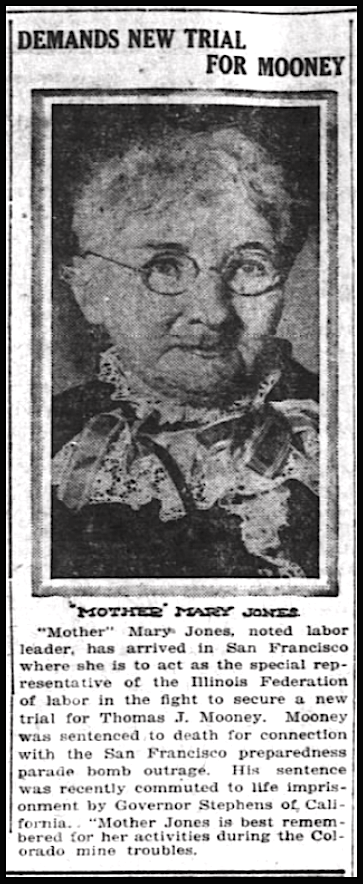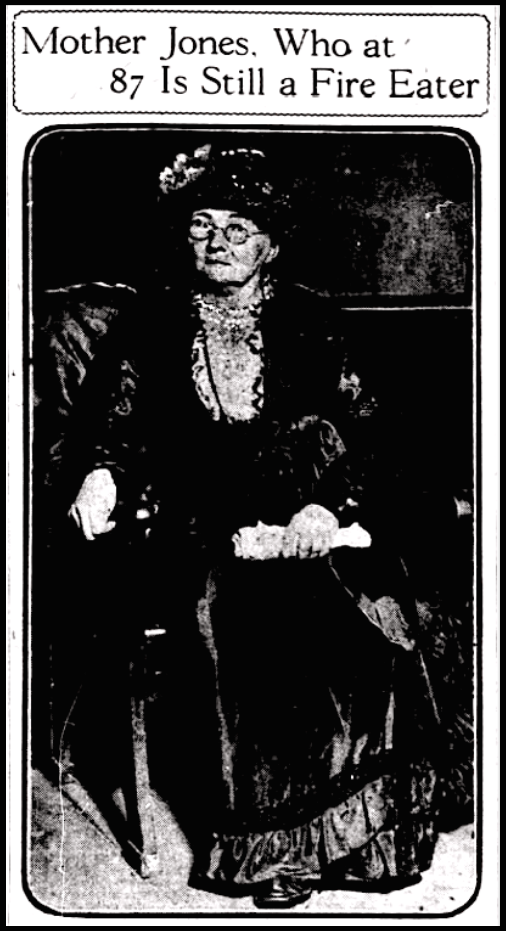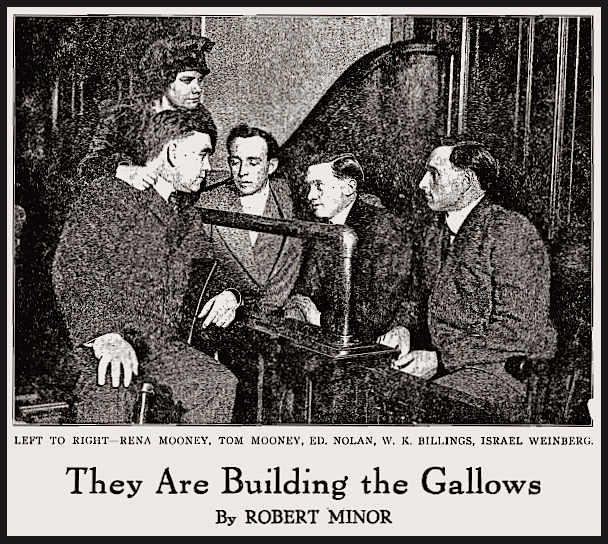 —————
—————
Hellraisers Journal – Friday April 25, 1913
Martial Law/Strike Zone, West Virginia – Cora Older Speaks with Mother Jones
From Collier’s National Weekly of April 19, 1913:
Answering a Question
By MRS. FREMONT OLDER
Mrs. Older is the wife of Fremont Older, editor of the San Francisco “Bulletin,’’ who was one of the citizen leaders responsible for the overthrow of the Schmitz boodle gang and for the conviction of Abe Ruef. But Mr. Older is a newspaper man before he is a reformer. Hence his question-which herewith Mrs. Older answers.
———-
MOTHER JONES and forty-eight men were on trial before a military court in Paint Creek Junction, W. Va., charged with conspiracy to murder. Mother Jones and five leaders refused to plead; they would not admit that the military court had jurisdiction over civilians. It was an interesting situation, but little news came to the outside world.
“Why don’t we get news from West Virginia?” my husband asked me one morning. So I started from San Francisco to find out.
On the last day of the trial I arrived in Paint Creek Junction [Pratt], the military capital of the strike zone. A few small houses tilted toward the muddy New River. Barren brown mountains imprisoned the town.
A flag fluttered freely over the dingy village. A soldier greeted me as I got down from the train. Soldiers swarmed about the little railway station converted into a “bull pen” for strikers on trial. Through the streets at the point of guns soldiers were driving civilians. “Prisoners,” some said; “Martial law.” Former Governor Glasscock’s proclamation posted on the little green lunch counter at the station spelled it “Marital law.”
Pickles are served at breakfast in Paint Creek Junction. “Lena Rivers” is the “best seller,” but the place is filled with class hatred and suspicion. One whispers; soldiers may hear. Americans of old colonial stock sneer at the militia. “Yellow legs!” “Spies!” “Strike breakers!”
EVERY man is his own Marconi in Paint Creek Junction. In half an hour it was known that a strange woman had arrived to visit Mother Jones. A messenger tiptoed into my boarding house to say that Mother Jones and the prisoners were allowed to meet no one, especially reporters; but if I wanted to find out about conditions I’d better talk with Mother Jones’s landlady. “Go to the side door, and into the kitchen.”
By this time I felt like a conspirator. I almost tiptoed through the soldiers. Mother Jones occupied the parlor of a small white cottage. I was welcomed by the landlady. We were chatting in the kitchen when, without rapping, an officer entered and said to me: “The Provost Marshal wants you at headquarters.”
“Why?” I asked, bewildered. I did not know I was under arrest.
Martial law was in the soldier’s glance. He repeated his command. “And they call us anarchists,” commented the fiery-eyed, white-faced landlady.
Through the main street, past armed sentinels, up a flight of stairs to a large room filled with empty benches and stacked guns, we went to the Provost Marshal. Stern, unsmiling as justice, he asked me to explain my presence and my existence. I told him the truth. The Provost Marshal frowned. I wondered about the “bull pen.” I made the discovery that I am no Christian martyr. I am a sybarite hopelessly prejudiced against bull pens. I fumbled in my bag and brought forth an engraved card. I was released on good behavior.
But I was able now to answer the question which had brought me across a continent. The PROVOST MARSHAL was the ASSOCIATED PRESS CORRESPONDENT.

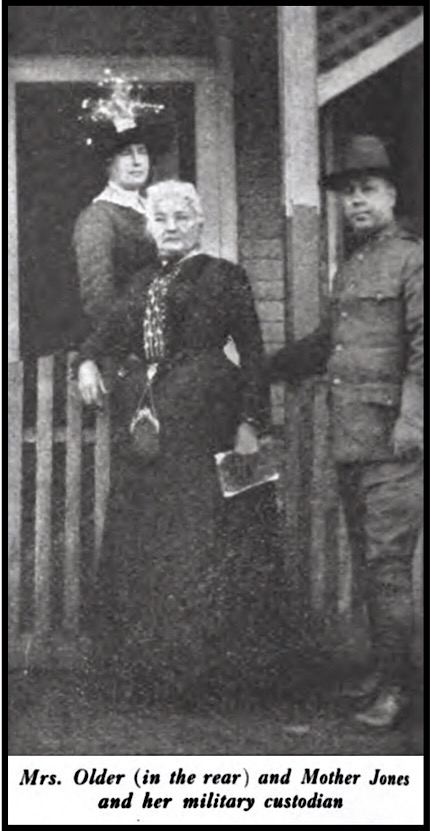
 —————
—————
 —————
—————
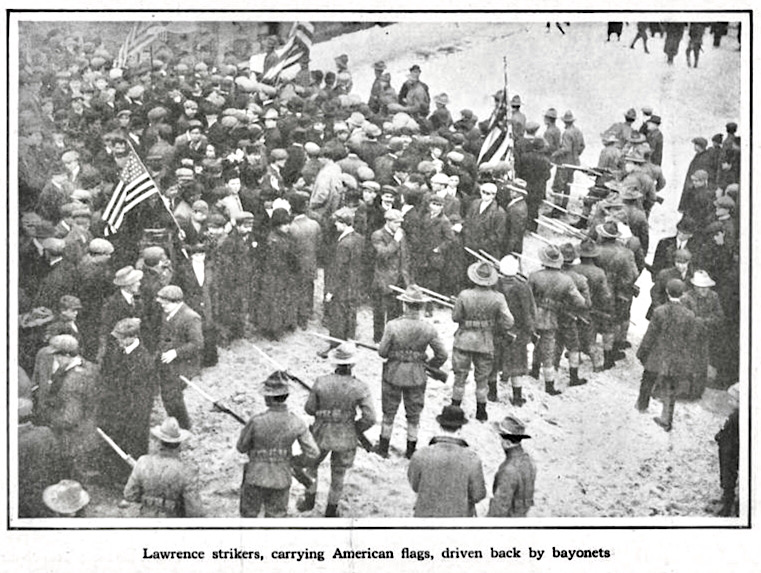
 ———-
———-